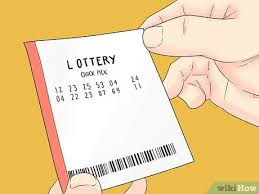A lottery is a game in which participants place bets on the outcome of a drawing. The winners receive prizes. A lottery may be a financial one where money is collected as a prize or a non-financial type of lottery where the prize is not paid but rather awarded on the basis of chance. https://www.ridleytownshiphistory.com/
Lotteries are often a source of revenue for governments and institutions. In some cases, lottery money is earmarked for specific projects; in others, it is used to pay employees and administrative costs.
State and local governments typically have a lot of control over what happens with the lottery money. For example, some states have a constitutional prohibition against the use of lottery funds for political purposes; other states have set limits on how much money can be raised by the lottery.
Many of these limitations are aimed at protecting the public interest. In particular, it is important that the odds of winning are not too easy or the prizes are too small.
The odds of a lottery are calculated by taking the number of balls in the draw and multiplying it by the probability of picking a specific number. For example, if there are 50 balls in the draw and you are able to pick a number from every ball, your chances of winning are 18,009,460:1.
These numbers are called “balls” because they represent the numbers drawn out of a random pool. Those who choose their numbers correctly are rewarded with prizes, while those who don’t are given nothing.
Usually, the larger the jackpot, the more people will play it. This can lead to increased ticket sales and publicity.
However, this can also cause the odds of a person winning to be less. The higher the jackpot, the more likely it is that the winner will have to share it with other players.
In the United States, there are many national and local lottery games. These can be played online or offline. Some of them are more popular than others, so it is important to choose the one that best suits your preferences and desired winning odds.
Some lottery players have developed systems and strategies for selecting their numbers. Some of these strategies involve picking a sequence that isn’t chosen as frequently by other players. They may include a combination of numbers that have special significance to the player, such as those associated with their birthday or anniversary.
Other players choose to be more adventurous and try playing different numbers. This strategy can be especially helpful if you are new to playing the lottery and don’t have a good grasp on the game.
These strategies can also help you make more money from the game by reducing your odds of splitting the prize with other players. By selecting rare, hard-to-predict numbers, you can increase your odds of walking away with a bigger jackpot.
While there are some people who have won multiple prizes, there are few examples of such a thing happening. The reason for this is that there is no system or grand design that can guarantee a win.





